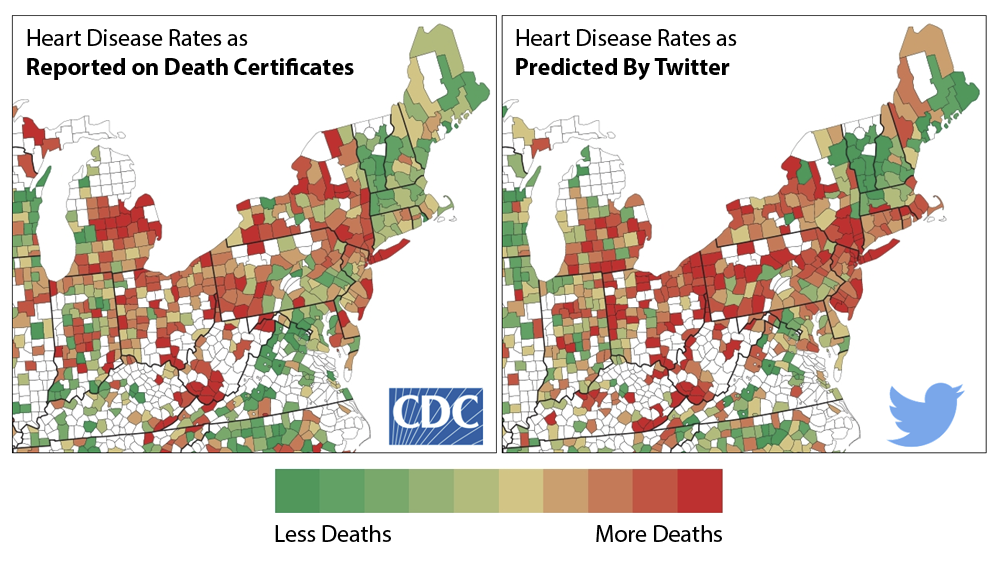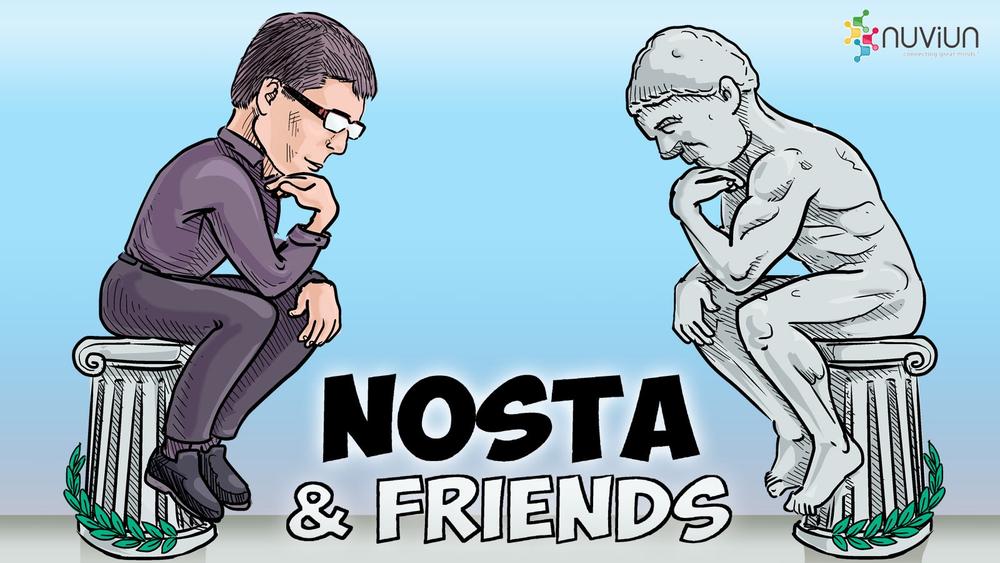Social-media-based digital epidemiology can support faster response and deeper understanding of public-health threats than can traditional methods.
Language expressed on Twitter is a stronger predictor of the number of cardiac deaths than any other risk factor, according to new research published in Psychological Science. Funded by the Robert Wood Johnson Foundation and Templeton Religious Trust, this project is part of a larger effort at the University of Pennsylvania to find unobtrusive and less expensive methods of measuring health and wellness.
Earlier research from the University of Pennsylvania team found that linguistic analysis works as well as traditional questionnaires in assessing an individual’s psychological state.
“Psychological states have long been thought to have an effect on coronary heart disease," according to Margaret Kern, assistant professor at the University of Melbourne, Australia. "For example, hostility and depression have been linked with heart disease at the individual level through biological effects. But negative emotions can also trigger behavioral and social responses; you are also more likely to drink, eat poorly and be isolated from other people, which can indirectly lead to heart disease."
However, looking at the psychological states of entire communities and how they may relate to communal health is something perhaps only plausible now that so many people are expressing their feelings through social media sites.
“Getting this data through surveys is expensive and time consuming, but, more important, you’re limited by the questions included on the survey,” said Johannes Eichstaedt, a graduate student at the University of Pennsylvania’s School of Arts & Sciences department of psychology who lead this Twitter study. “You'll never get the psychological richness that comes with the infinite variables of what language people choose to use.”
The American Heart Association recognizes the social and environmental determinants of health as important, yet elusive, factors that contribute to cardiac events. With 288 million users in the US writing about their daily lives on Twitter, this social media data poses a potentially valuable source of public health information if it can be tied to real-world outcomes.
Eichstaedt and his team analyzed atherosclerotic heart disease (AHD) mortality rates, county-level socioeconomic, demographic, and health data along with tweeted words from 1,347 US counties. The studied counties account for more than 88% of the US population.
Researchers found that language expressed on Twitter revealed community-level psychological characteristics that were associated with heart disease mortality risk. Patterns reflecting negative social relationships, disengagement, and negative emotions emerged as risk factors for heart disease. Language expressing positive emotions and psychological engagement were protective against heart disease.
The People Tweeting Aren’t the People Dying
The analysis of the negative emotions – especially anger – expressed on Twitter at the community level was a better predictor of cardiac mortality rates than any other indicators of physical risk. Perhaps the most interesting aspect of this research is that the typical Twitter user is younger than the typical person at risk for AHD. With a median age of 31, the people tweeting reflect a shared physical, economic, and psychological environment that can predict cardiac death rates in their community.
Social-media-based digital epidemiology is limited because it cannot predict exactly when or how many people will die from AHD. However, studying the language on social media can indicate which communities most need interventions.
Social Media Messages Reflect Community Health
Heart disease is the #1 cause of death in the US, accounting for over 375,000 deaths each year, according to the American Heart Association. Physical risk factors include smoking, lack of regular physical activity, poor diet, overweight/obesity, uncontrolled high cholesterol or blood pressure, and diabetes.
These lifestyle factors are often considered the responsibility of individuals. While individual life choices are important, the World Heart Federation acknowledges that people do not always have the opportunity to make healthy choices because of the confines of their home, work, school, or community environments.
Perhaps the Twitter study captures these environmental constraints, from unsafe neighborhoods to lack of leisure time—making the language expressed in social media a faster, less expensive, and more accurate means of measuring the psychological and medical well-being of communities.
Log in or register for FREE for full access to ALL site features
As a member of the nuviun community, you can benefit from:
- 24/7 unlimited access to the content library
- Full access to the company and people directories
- Unlimited discussion and commenting privileges
- Your own searchable professional profile







.jpg)